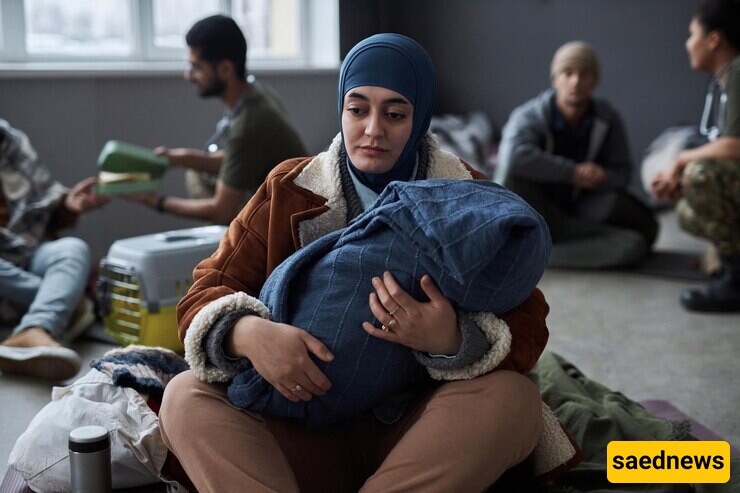SAEDNEWS: Refugee narratives highlight the strength, challenges, and humanity of people compelled to leave their homes. By acknowledging and sharing these experiences, we cultivate empathy, raise global awareness, and inspire action to address the refugee crisis.

According to SAEDNEWS: around the world, over 35 million people have been forcibly displaced due to conflict, persecution, or environmental disasters. Behind these staggering statistics are individual stories—testaments to courage, hope, and resilience. Refugee narratives help bridge cultural divides and challenge misconceptions, highlighting the urgent need for global solidarity.

Refugees are often stigmatized, portrayed as burdens, or conflated with security threats, which dehumanizes individuals who have endured unimaginable hardships. These misrepresentations can be challenged by sharing authentic refugee stories that counteract harmful stereotypes and foster a more nuanced understanding. While statistics capture the scale of displacement, they fail to convey its emotional depth. Personal accounts bring the crisis to life, highlighting the shared humanity of those affected and evoking empathy and compassion through their journeys, struggles, and aspirations.
Moreover, refugee stories often reveal the cultural richness and diversity they bring to their new communities. Sharing these experiences fosters mutual respect and understanding, breaking down barriers between displaced populations and host communities. Narratives of successful integration further demonstrate the transformative benefits of embracing refugees, showing how inclusive societies thrive by welcoming diverse perspectives and talents.
Refugee stories shed light on systemic issues such as war, political instability, and climate change, which disproportionately affect marginalized communities. Understanding these root causes can inspire action to address the underlying problems driving forced migration.
Narratives often reveal disparities in global responses to refugees. While some nations offer safe havens and support, others enforce restrictive policies. These stories underscore the need for equitable and humane solutions.
Hearing refugees’ experiences can mobilize public opinion, leading to increased advocacy for their rights. Stories that highlight resilience and potential challenge the notion of refugees as mere victims, showcasing their capacity to contribute meaningfully to society. Refugee narratives can also shape policy decisions. When leaders and decision-makers connect emotionally with individual accounts, they may be more inclined to enact compassionate and effective measures.

Media outlets, social media, and nonprofit organizations play a critical role in amplifying refugee stories. Ethical storytelling ensures that narratives are shared respectfully, prioritizing the dignity and agency of those involved. By focusing on resilience and achievements, media can counterbalance negative portrayals and emphasize the positive impact of refugees on host communities.
Refugee stories are powerful reminders of human resilience and the universal desire for safety and dignity. By amplifying these voices, the world can move toward greater empathy, understanding, and collective action to address the refugee crisis. Recognizing their humanity is the first step in building a more inclusive and compassionate world.

